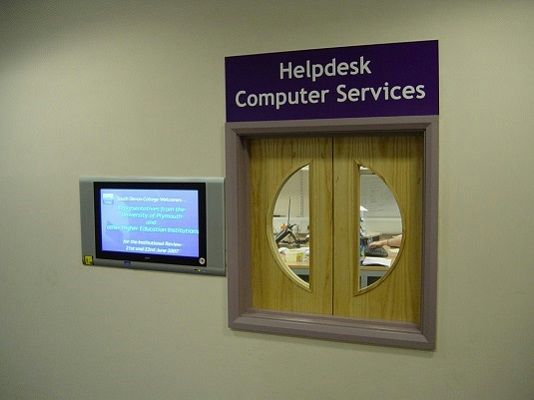
One thing I’ve observed in these forums is that many IT professionals are frustrated by how businesses treat them.As Community Manager and Level 1 Support for a help desk software company I regularly visit online forums for sysadmins, help desk technicians, and other IT professionals.
Now that’s a helpdesk portal
Having spent the last two months in Level 1 tech support, I can speculate as to why this frustration occurs. But rather than speculate, I wanted to gather some data so I surveyed 70+ IT professionals to try and figure out what businesses are doing to frustrate them and demotivate them.Frustration is common in all professions, but I’d say the ubiquity and intensity of frustration is unique to IT. In fact, there are online forums designed solely for the purpose of letting IT professionals vent their frustrations (one of the most popular forums has 100,000+ subscribers).
If you’d like to see all the survey responses, the data is available for free here. You can also read the summary of the results below.
I don’t think businesses treat IT professionals poorly on purpose, but I do believe they are ACCIDENTALLY doing some things that frustrate and demotivate them, for example:
1. Surround them with lazy co-workers
Problems: Lazy help desk employees are not held accountable nor coached to improve. Proactive and efficient help desk technicians are not rewarded for their efforts. Businesses create a perception performance doesn’t REALLY matter. All that really matters is attendance.
Many help desk techs and sysadmins start their careers as proactive and ambitious employees. They set high standards for themselves and want to be top performers in the organization. They start as “A+” performers. But, these A+ performers often get surrounded by “C-” employees who are just looking for a paycheck and do nothing but look for shortcuts and complain about end users. When A+ performers see that these “C-” employees are not coached to improve nor held accountable for their performance, they start to lose their motivation.
Solutions: Set SLA targets for each help desk team member. Establish weekly check-ins so that performance can be regularly monitored. Hold quarterly reviews so employees are not surprised by their year-end performance evaluations. Coach under-performing employees on how to improve their performance or let them go if they can’t meet expectations. Give top performers challenging bonus projects with a focus on problem solving. Make it clear with actions (bonuses, raises, promotions, etc) that performance is measured and that top performers are compensated commensurate with their value to the organization.
2. Give them a non-technical boss
3. Make their IT training sessions optional
Solutions: Make IT training sessions mandatory. Keep track of attendance. Withhold new technology from employees who do not complete the necessary training. Make employees who frequently submit help desk tickets attend a “back-to-basics” courses with training on the tools where they experience the most issues.
4. Don’t give them opportunities to advance
Very few marketers and sales people would be fulfilled in a role where there’s no room for career advancement. IT professionals are no different. They want the opportunity to be rewarded for their achievements and loyalty with increased scope, managerial responsibilities, new challenges and the commensurate compensation that comes with advancement.
Solutions: Define a set of stretch objectives and goals for each help desk employee and track progress against their objectives. If they hit the goals, increase their scope, give them more input into the business, give them new challenges, promote them, and increase their compensation when they contribute considerable value to the business.
5. Don’t listen to their advice
Solutions: Communication. Managers should set up weekly touch base meetings with help desk staff. Keep them informed of company progress and reach out to see what the IT department needs to be successful. If money is being invested in infrastructure or technology, then consult the help desk staff for their recommendations.
###
If you’re an IT professional who has experienced one of these frustrations, please help spread the word by sharing this post.
Thanks,
Ryan

